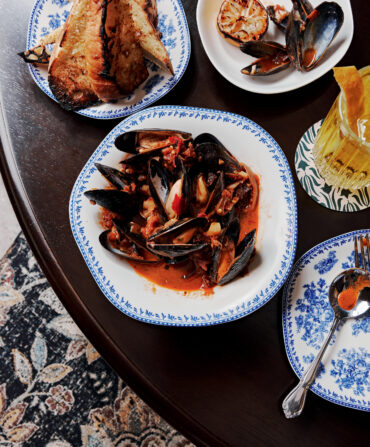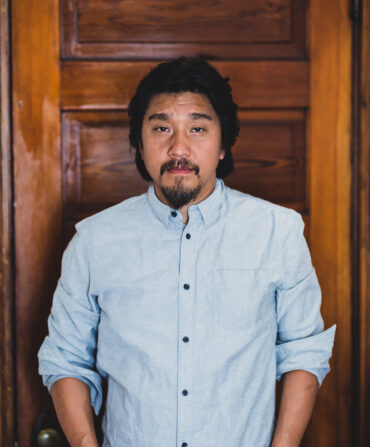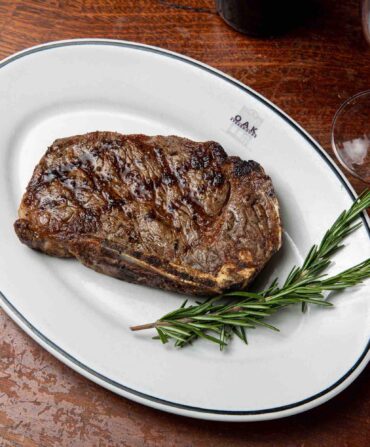When coffee roasters Todd Carmichael and Jean Philippe Iberti set out to create a blend that would complement the flavors of Southern food, they had no idea they’d have to revive the nearly extinct coffee market in Haiti to do it.
“We started researching pre–Civil War coffee in the South, and it became pretty evident that some of the country’s best coffee was coming straight into New Orleans,” says Carmichael, who founded Philadelphia-based roaster La Colombe Torrefaction with Iberti in 1994. “We assumed it was all chicory, but it turned out the South was drinking coffee from Haiti two hundred years before chicory was even introduced to the region.” Now, after fourteen long months of development and eight trips to Haiti this year alone, Carmichael and Iberti have introduced Louisiane, a custom blend dedicated to the South.

Photo: Trevor Dixon
La Colombe founders Jean Philippe Iberti (left) and Todd Carmichael.
Friends who bonded over coffee in Seattle in the mid-1980s, Carmichael and Iberti started La Colombe with the goal of producing “culinary coffee,” blends with depth and consistency that would work with, not against, food. They’ve since earned a following among high-profile chefs, including Eric Ripert and Daniel Boulud. But to create a blend for the South, they first had to track down the bean that was historically significant to the region. Using shipping records from the 1700s, Carmichael traced the original bean back to Blue Forest, a semi-wild heirloom ‘Typica’ variety grown in the mountains of Haiti, whose once-booming coffee industry had faded into near-dormancy. “Haiti had gone off the map for so long as a coffee producer you just didn’t even think about it,” he says. “But the beans and the potential are still there.”

Photo: Trevor Dixon
Black Gold
Blue Forest beans.
Next, the pair had to figure out how to access the beans. “When we went to Haiti, looking for Blue Forest, the island was a mess,” Iberti says. “There was violence and fear. But in the hills and fields where the coffee is grown, it’s just magic.” Ironically, they found that Haiti’s troubled conditions have actually helped to preserve the quality of the beans, as economic and social issues have taken precedence over development and trade. “It’s like finding a time capsule,” Carmichael says. “The past three hundred years haven’t affected these beans one bit.” La Colombe partnered with local growers and cooperatives to bring tens of thousands of pounds of Blue Forest to the United States, an effort that has, in turn, spurred renewed interest in Haitian coffee. “For us, it’s not about exclusivity,” says Iberti. “We want every roaster who can to spend money in Haiti.”
Finally, back in the States with beans in hand, Carmichael and Iberti began to perfect the blend, traveling south and meeting with chefs to identify the key flavor components in Southern cooking. “To develop coffee blends, you taste the food—the traditional smokiness, the woodiness, the minerality of things from the earth—and go from there,” Carmichael explains. “In Portland, they’re drinking fruity and floral coffees. That’s no kind of coffee for the South.”
Throughout the fall, the pair has been hitting the road to introduce Louisiane to chefs below the Mason-Dixon, and they’re hoping to add more Southern blends to their roster in the future. “We didn’t expect this process to become such a huge commitment, but everything we’ve been through has made our dedication to Louisiane more profound,” says Carmichael. “We’re not just talking about food or coffee at this point. We’re talking about culture, farming, history, and, most important, people.”
For more information and to order, visit lacolombe.com








